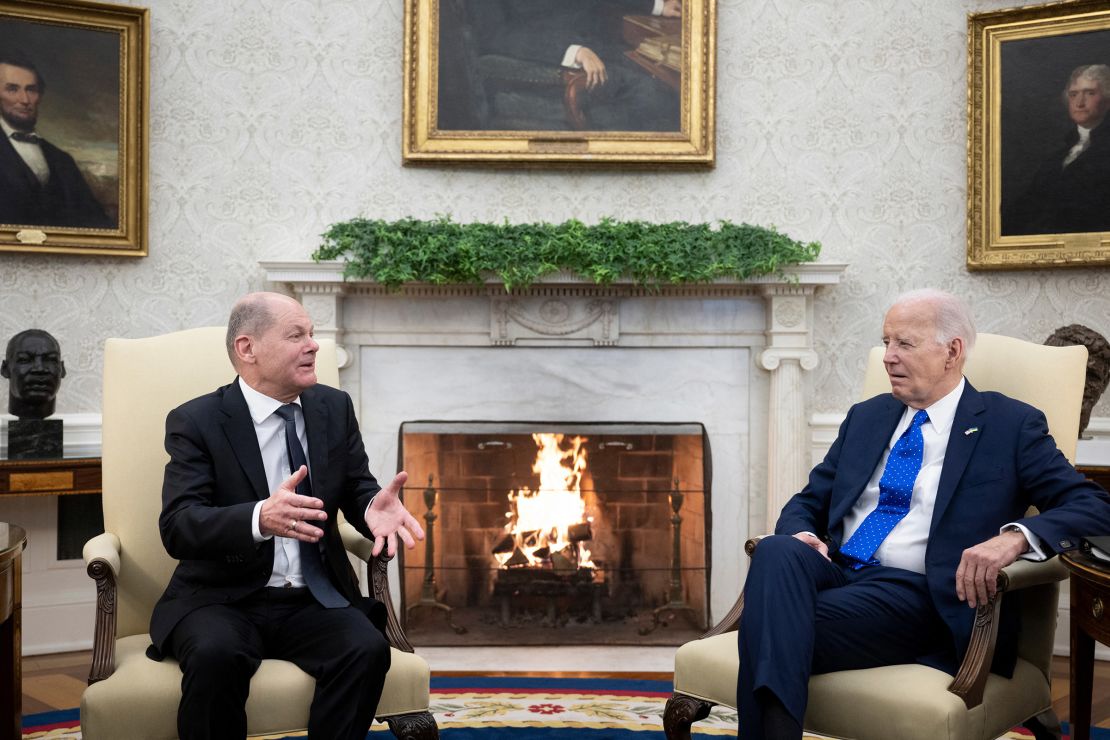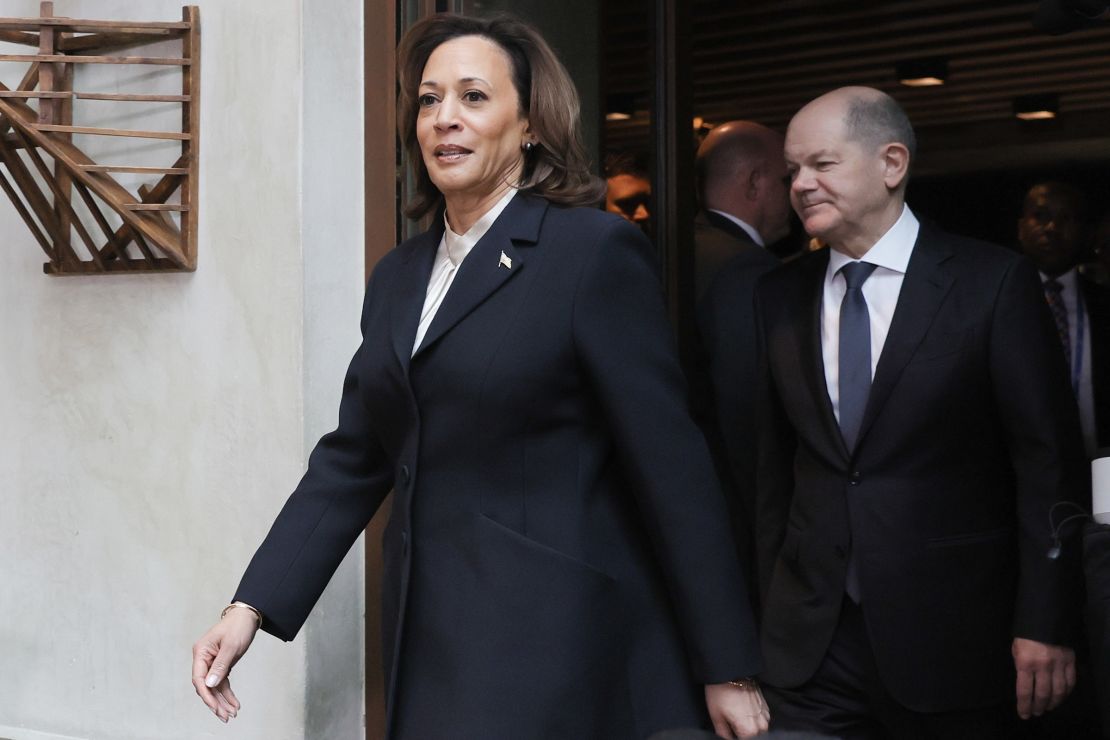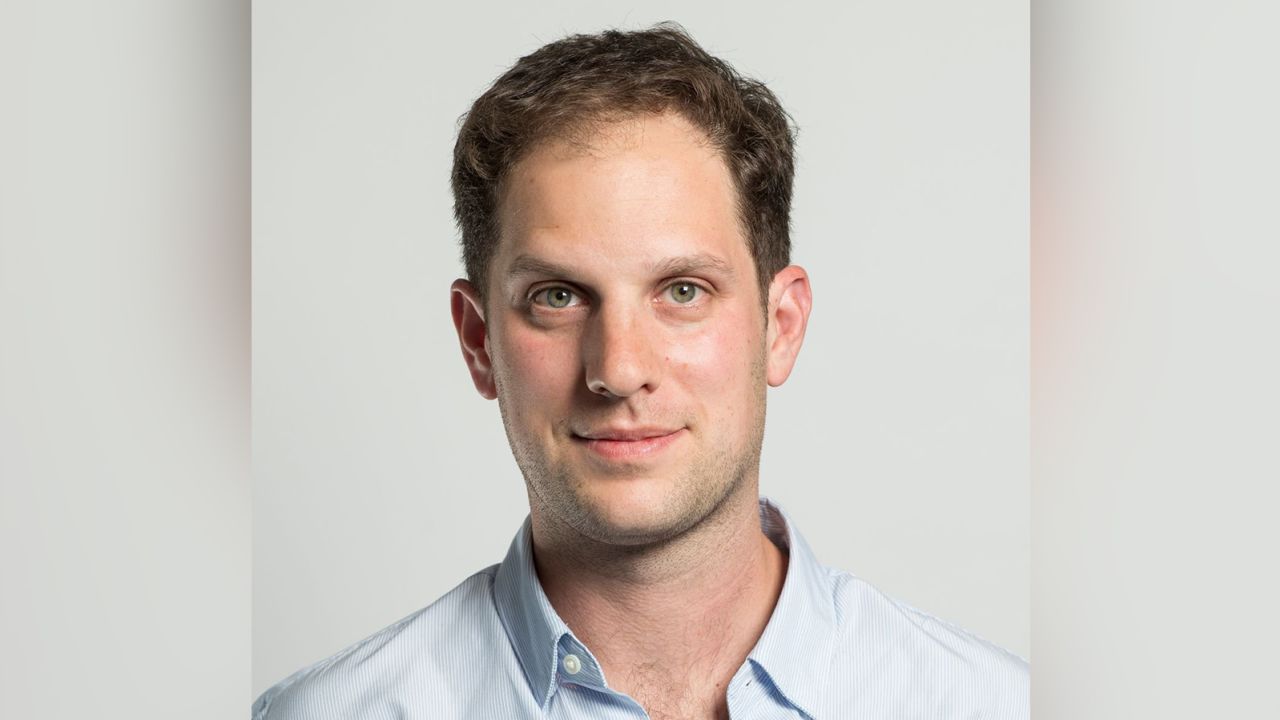CNN
—
In late June, CIA officials held a secret meeting with Russian intelligence officers in an undisclosed Middle Eastern capital city to present a proposal for a possible prisoner swap. It was the latest in a series of offers US officials had made to Russia in a yearslong effort to secure the release of Americans imprisoned in Russia.
But this time, the CIA had something new to offer: Vadim Krasikov, a Russian assassin who’d been convicted of executing a man in broad daylight in Berlin and was serving a life sentence in a German prison.
The proposal the CIA offered to the Russians that day was the culmination of months of work by US officials to convince the Germans to release Krasikov, who’s seen as having close ties to Russian President Vladimir Putin. The expansive deal presented that day included trading the Russian assassin for two high-profile Americans jailed in Russia on baseless charges of espionage: former US Marine Paul Whelan and Wall Street Journal reporter Evan Gershkovich.
The Russian officials took the proposal back to Moscow. In early July, in a phone call with CIA Director Bill Burns, the Russian side indicated to the Americans that they agreed to the deal in principle, but the specifics still needed to be hammered out. Then on July 17, Moscow formally accepted the terms by transmitting their answer to the CIA, setting the stage for the largest prisoner exchange between the US and Russia since the Cold War, one that involved 24 prisoners and seven countries.
It was a remarkably swift conclusion to years of painstaking negotiations between the US and more than half a dozen countries. It marked the end of a harrowing ordeal for Gershkovich, who just last month was sentenced to 16 years in prison after more than a year spent in jail, and for Whelan, who had been in Russian custody for nearly six years, many of them in a remote forced labor camp.
The deal also brought home Russian-American journalist Alsu Kurmasheva and freed prominent Putin critic Vladimir Kara-Murza, who is a US legal permanent resident.
On Thursday, Gershkovich, Whelan and Kurmasheva stepped onto an American plane in Turkey bound for US soil, one of more than half a dozen planes on the crowded tarmac in Ankara that day – a testament to the unprecedented number of countries involved in the complex, monthslong negotiations.
“The deal that made this possible was a feat of diplomacy and friendship,” President Joe Biden said in remarks from the White House on Thursday. “Multiple countries helped get this done. They joined difficult, complex negotiations at my request.”
Late Thursday night, the freed Americans landed on US soil at Joint Base Andrews, where they were greeted by family members, Biden and Vice President Kamala Harris.
This account is based on conversations with a dozen US officials who spoke of the intense efforts the Biden administration put into the negotiations – including navigating unexpected hurdles that at times threatened to derail the entire operation.
Key to the deal was President Biden’s ability to persuade German Chancellor Olaf Scholz to release Krasikov, the Russian prisoner most keenly sought by Putin. When Krasikov was convicted of murdering a former Chechen fighter, the German court that convicted him said he acted on behalf of the Russian state, shooting his victim “execution style” in broad daylight.
In December 2022, after the Russians refused to include Whelan in a prisoner swap that freed WNBA star Brittney Griner, officials across the interagency turned back to efforts to secure his release. They put forward another offer to Russia shortly after Griner’s release, according to a source familiar with the matter. But it was rejected.
The Biden administration had for years sought Whelan’s release, and in January 2023, US intelligence officers met their Russian counterparts in an unnamed third country to offer a proposal to trade Whelan for two Russian nationals held in Slovenia. Russia rejected the offer then, and again in March of that year in a phone call with Burns.
Then, the situation changed: In March 2023, Russian security forces arrested Gershkovich for espionage, the same charge levied against Whelan, which the US fiercely denied. Now, the Russians – who typically want parity in their swaps – wanted two high-value exchanges in return.
The Biden administration had already traded its most valuable Russian prisoner, convicted arms dealer Viktor Bout, in return for Griner’s release. That left them with no high value Russian spies in custody, so officials began to scour the globe for Russian detainees, engaging in quiet diplomacy with allies to find others to make a deal.
In November of that year, CIA officers in Moscow proposed an offer to swap four Russian prisoners held by Norway, Poland and Slovenia in exchange for Whelan and Gershkovich.
But when Russia rejected the offer, it became clear to the US side that Russia wanted Krasikov. No one else would do.
Now, the US government, working through intelligence channels, the State Department and the National Security Council, would have to convince the German government to swap him.
There were more clandestine talks, held through a secretive CIA channel that the agency has worked through for years to conduct sensitive diplomacy with Moscow, some of which included the possible release of Russian dissident Alexey Navalny in exchange for Krasikov.

Before the CIA could bring any serious proposal to the Russian side that involved Krasikov, the Biden administration had to get Germany to agree.
Secretary of State Antony Blinken had learned through a top State Department official, James Rubin, who had talked with the Navalny team that there was reason to believe that Germany would agree to swapping Krasikov if there was a compelling moral imperative, said a senior State Department official. It was not a solution to the problem, but it impacted how the administration thought about getting Germany on board.
At a G7 meeting in April 2023, Blinken raised the idea of offering up Krasikov with German Foreign Minister Annalena Baerbock. But she conveyed to Blinken her concern that Navalny would just return to Russia, among other objections, according to a US official familiar with the matter. National Security Advisor Jake Sullivan also repeatedly raised it on numerous occasions with his German counterpart.
Officials worked quietly throughout this year to get the German government to agree to release Krasikov — including entreaties from both Biden and Harris.
Biden raised the issue with Scholz in a January call and discussed it again with him in February during a meeting in the Oval Office. At that point, US officials felt that the deal had a good chance of coming together, according to an administration official.
In the Oval Office meeting, according to a senior administration official, “Chancellor Scholz responded to the President, saying, ‘For you, I will do this.’”
“The president then turned to Jake and said, ‘Get it done,’” the official said.
After that February meeting, Sullivan was regularly passing lists to Berlin of possible Russians who could be swapped. The national security advisor in particular remained “optimistic,” according to another senior administration official.
But then there was another blow: On February 16, 2024, Navalny died in a Russian prison. The US had been working to include Navalny in the deal. “Everything cooled,” after Navalny died, said one US official familiar with the talks.
“At the time on that day, the team felt like the wind had been taken out of our sails in terms of efforts to get Paul and Evan back home,” a senior administration official told reporters on Thursday morning.
Navalny’s death was made public in the opening hours of the Munich Security Conference in February, throwing everything into peril.
Harris, who was in Germany for the conference, pressed Scholz to facilitate Krasikov’s release in a private meeting with the German chancellor. After she wrapped up a scheduled meeting with Scholz, she asked all staff to leave the room for what US officials sometimes refer to as a “restricted bilateral meeting,” where just one aide each for the vice president and the chancellor remained.
In that intimate conversation, Harris emphasized that the release of Krasikov would be critical to a deal, a White House official told CNN.

Back in Washington, on the day the US learned of Navalny’s death, Sullivan had a previously scheduled meeting in the afternoon with Gershkovich’s parents. It prompted Sullivan to direct his team to start compiling lists of people who could still make a viable deal for Germany, a senior administration official and a second US official said.
The list was finalized in late March, according to the US official. President Biden sent a letter to Scholz in April, and the Germans at last agreed to release Krasikov in early June. The key, according to multiple US officials, was the inclusion of Kara-Murza and seven other Russian political prisoners.
It wasn’t only Germany that the US had to get on board. Still in Munich, Harris also asked for a meeting with Prime Minster Robert Golob of Slovenia. The main purpose of that meeting, a White House official said, was to press the prime minister on moving forward with the release of the two Russian nationals that were in Slovenian custody that the US had also identified as being a top priority for the Russians — the two that Russia had rejected on their own for the release of Whelan back in 2023.

This is what journalist was working on before getting arrested in Russia
The official readout of that meeting, of course, made no mention of the two leaders discussing the prisoner swap.
Biden was also pressing the Slovenes. As recently as two weekends ago, just moments before announcing that he would be ending his 2024 campaign, Biden called the Slovenian prime minister to urge him to get the deal across the finish line.
It was only in recent weeks that Moscow agreed to the deal on the table. Once they gave their approval, things began to move quickly.
Gershkovich’s trial – largely condemned as a sham – was expedited to July, with a quick conviction on the charges of espionage and a sentencing of 16 years in Russian prison. Kurmasheva’s trial was also quietly accelerated, and she was sentenced to 6.5 years in prison. In past prisoner swaps, the Russians had wanted convictions before they would move forward on any deal.
In late July, in remarks at the Aspen Security Forum days after Gershkovich’s conviction, Sullivan was asked about efforts to free the Wall Street Journal reporter.
“All I can tell you is we are laser-focused on this; we are determined to make it happen. And I will consider it one of the most important things between now and the end of the year, and especially now at the end of the month, for us to try to get something done where we can get him home,” he said.
As the end of July approached, the signals became even clearer. Pardons were issued for some of the individuals involved in the swap. The locations of other detainees were suddenly unknown.
On July 26, Special Presidential Envoy for Hostage Affairs Roger Carstens spoke with Paul Whelan by phone at his remote prison camp in Mordovia. Carstens was not able to tell him any details about the imminent swap, but he was able to get a sense of how Whelan was feeling, which was optimistic, a source familiar said.
Jeff Flake, the US ambassador to Turkey, said there was a constant fear of the last several weeks that could spell the end of the deal, especially with so many moving parts to the exchange and so many people involved.
“We just feared that some leak would spoil it,” Flake told CNN from Turkey. Flake says he was only brought in “a couple of weeks ago” as the exchange neared its final stages. “There were just very, very few that were aware of it,” he said.
On August 1, all of the efforts came to fruition, as the historic deal played out.
“Today was a very good day,” Sullivan said.

